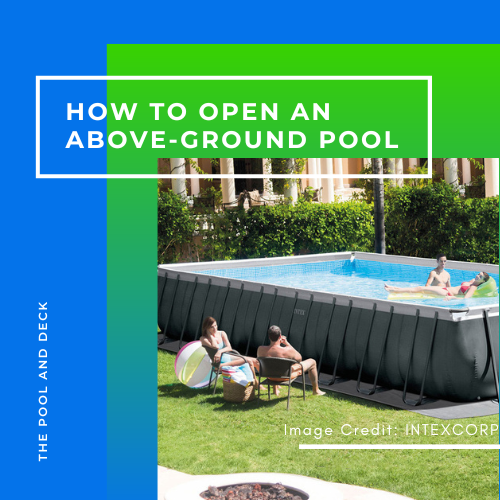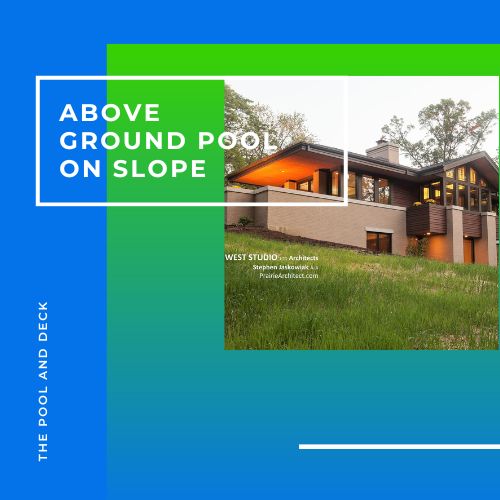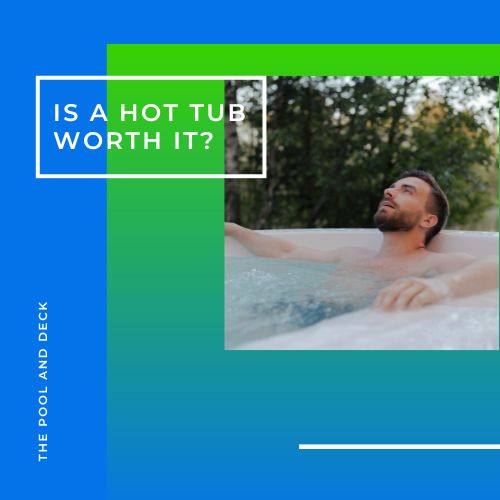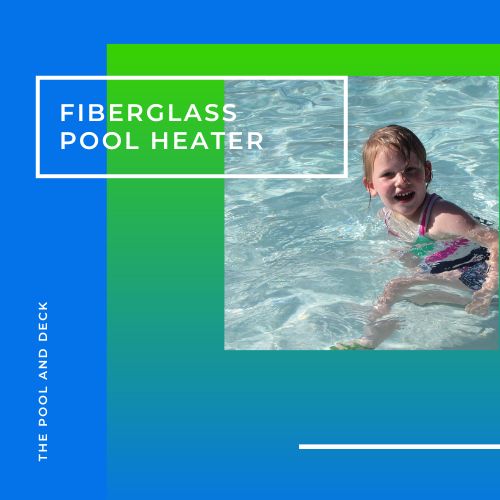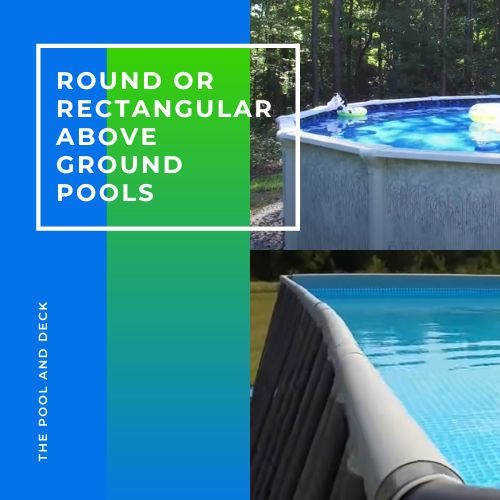Are Pool Heat Pumps Worth It? (More Value for Money!)
As an Amazon Associate, I earn from qualifying purchases.
Table of Contents
Are Pool Heat Pumps Worth It?
Each year it seems like the summer has been too short. Just when you are beginning to enjoy your backyard pool, the water starts getting a bit too cold for comfort. Fortunately, with the right pool heater or heat pump, you may be able to extend your pool season by a few more weeks. What about pool heat pumps though? Are pool heat pumps worth it?
The upfront cost of a pool heat pump may be more than twice that of a gas pool heater, but it is still worth it. Why? Because the energy cost of running a pool heat pump is just 6% of a propane heater and 15% of a natural gas heater.
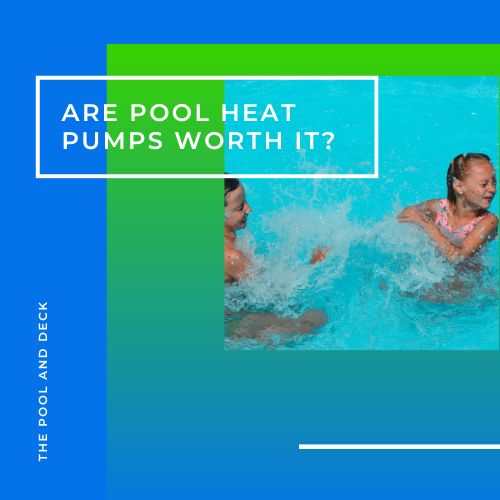
You would recover the additional upfront cost of the pool heat pump in just 700 hours of operation. That is only 4 weeks of continuous use.
In short, the pool heat pump will pay for itself in energy savings in the very first year of purchase.
What Is the Difference Between a Pool Heat Pump and a Pool Heater?
It is possible to heat a swimming pool in 3 different ways.
1. Electric or Gas Pool Heater
A pool heater can run on electricity, natural gas or propane.
In each case the pool heater generates heat, either from electricity or by burning natural gas or propane. The cool water from the pool is pumped through the pool heater after filtration. The heat from the pool heater is transferred to the pool water as it circulates.
The warm water then exits from the pool heater and goes back to the pool. This continuous flow gradually heats up the pool to the required temperature.
2. Solar Pool Heater
In case of a solar pool heater, the cool water from the pool is circulated through coils embedded in solar panels. The solar panels harness the heat energy from the sun and transfer it to the pool water. The warm water is returned to the pool and the cycle continues.
3. Pool Heat Pump
The pool heat pump moves heat from the atmosphere surrounding it to the pool water using an evaporator and condenser combination.
The heat pump technology is exactly the same as air conditioning technology, just in reverse. The reason it is so efficient is because it does not use any form of energy (electrical or chemical) to create heat. It just moves existing heat from one spot to another.
How Do Swimming Pool Heat Pumps Work?
The schematic from Wikipedia does a great job of explaining how a swimming pool heat pump works.
Public Domain, Link
The pool heat pump uses electricity but not to generate heat. The electricity is used to run the fan and the compressor in the heat pump. The fan draws the hot air from the atmosphere and blows it over the evaporator. The cold liquid in the evaporator (3) absorbs this heat.
The refrigerant turns from liquid to gas in the evaporator. The pressure of the warm gas is increased by the compressor (4). The higher pressure further increases the heat of the refrigerant. The hot gas then passes through the condenser (1).
The pool pump circulates the cool pool water through the filter pump and the heat pump. As the pool water passes over the heat exchanger condenser it heats up by 3 – 5° F. The warm water returns to the pool through the return pipe line.
The hot refrigerant gas cools down a bit. The refrigerant, still under high pressure, is released from the condenser coil into the evaporator coil, through an expansion valve (2). The expansion cools the hot gaseous refrigerant into a cold liquid.
The liquid refrigerant goes through the evaporator. The cycle continues. The pool gets progressively warmer.
Which Is Better? Heat Pump or Solar Heater for Pool?
When it comes to a pool heat pump vs solar, both have some similarities. These are:
- Both use electricity, but not for heating. The electricity is required to run the pump, fan or compressor, as the case may be.
- The operating cost for both is very low as they draw heat from nature.
- Heat pump extracts heat from air while solar panels harness the energy of the sun
- Both are eco friendly
- The upfront cost for both is high (more than twice when compared to gas pool heaters)
- Both are a bit slow to heat the pool, when compared to gas pool heaters. However, a heat pump is much faster than a solar pool heater.
- Both have a lifespan of 10 – 15 years.
The main difference between a pool heat pump vs solar is:
Heat Pump
A heat pump is somewhat, but not totally dependent on the outside weather conditions. It works best when the outside air is hot & humid. However, the efficiency of the heat pump drops significantly when outside temperature drops below 50° F.
Solar Panel Heater
A solar panel heater works only when the sun is out. It does not work during the night. The effectiveness may also drop significantly on cloudy days.
The Verdict
Electric heat pumps are worth it and better than solar panel pool heaters in most situations as they can be operative, almost round the year. If you live in very cold climates, you could keep a gas pool heater as a backup.
Which Is Better? Heat Pump or Gas Heater for Pool?
When it comes to a heat pump vs gas pool heater, there are more differences than similarities. The differences are:
| ELECTRIC POOL HEAT PUMP | GAS POOL HEATER |
|---|---|
| Draws heat from the surrounding air | Burns propane or natural gas to generate heat |
| Low operating cost | Very high operating cost For $100 you can run a * propane heater for 10 hours * natural gas heater for 25 hours (1 day) * heat pump for 1650 hours (10 weeks) |
| Heats the pool slowly (May take 1-3 days to increase the temperature by 20° F) | Heats the pool pretty fast (May take 8-14 hours to increase the temperature by 20° F) |
| High upfront cost (more than twice that of gas pool heaters) | Low upfront cost (less than half that of pool heat pumps) |
| Low maintenance | High maintenance |
| Longer life | Shorter life |
The Verdict
Electric heat pumps are worth it and better than gas pool heaters in most situations as they will save you a ton of money in energy cost.
However, there are 2 scenarios where you are better off with a gas pool heater (though at a substantially higher cost)
- You want a heated pool even when the outside temperature is below 50° F
- You want your pool heated real fast
Keeping a gas pool heater as a backup to an electric heat pump is a great idea if you do not mind spending an extra couple of thousand US$.
Is It Important to Have a Pool Cover?
There are several benefits to using a pool cover, whenever you are not using the pool. A pool cover prevents:
- Heat loss due to water evaporation
- Water loss due to evaporation
- Debris falling into the pool
- Kids or pets falling into the pool accidently

24′ Round 12 Mil Clear Solar Pool Cover – $164.99
from: Pool Splash, LLC
What Size Heat Pump Do I Need for My Pool?
The size of the heat pump required to heat a pool depends on:
- Pool area
- Temperature increase required
- Wind speed & humidity levels
- Use of pool cover
The formula for calculating the size of the heat pump according to energy.gov is:
Heat Pump Rating (BTU / hour) = Pool Area (sq ft) X Temperature Increase Required (° F) X 12
Example: You need a heat pump rated at 192,000 (say 200,000) BTU / hour to heat a 20’ X 40’ pool by 20° F.
Final Thoughts
Having invested a huge amount of money in an inground pool you must try to get the maximum possible pool utilization. Often you can extend the pool season by several weeks by heating your pool.
In most situations, pool heat pumps are not only worth it but are often the best choice for you.
FAQ
Should the Pool Heat Pump Run All the Time?
The pool heat pump should run most of the day. Most pool heat pumps come with a thermostat. The heat pump will stop running once the pool is warm enough.
You should switch off the heat pump in the evening after pool use. Pull the pool covers on, to prevent heat loss during the night. This will help you save electricity.
When Should the Pool Heat Pump Be Turned Off?
Let the thermostat control the running of the pool heat pump. This will maintain the pool temperature at the desired level at all times.
However you need to completely switch off the heat pump during winterization or when outside temperature drops below 50° F.
At What Temperature Does a Pool Heat Pump Stop Working?
In theory a pool heat pump can draw heat from the surrounding air even at fairly low ambient temperatures. However, in practice the efficiency of the heat pump drops significantly once the ambient temperature falls below 50° F.
Should a Pool Heat Pump Be in the Sun?
Actually it is best to place your pool heat pump in a location where it gets the maximum possible sunlight. This ensures that the air around the heat pump is as warm as possible.
The efficiency of a heat pump is related to the temperature of the surrounding air. The higher the better. It is also important to ensure there is good airflow around the pool heat pump.
Thank you very much for reading the post. I do hope you found it informative and helpful.

